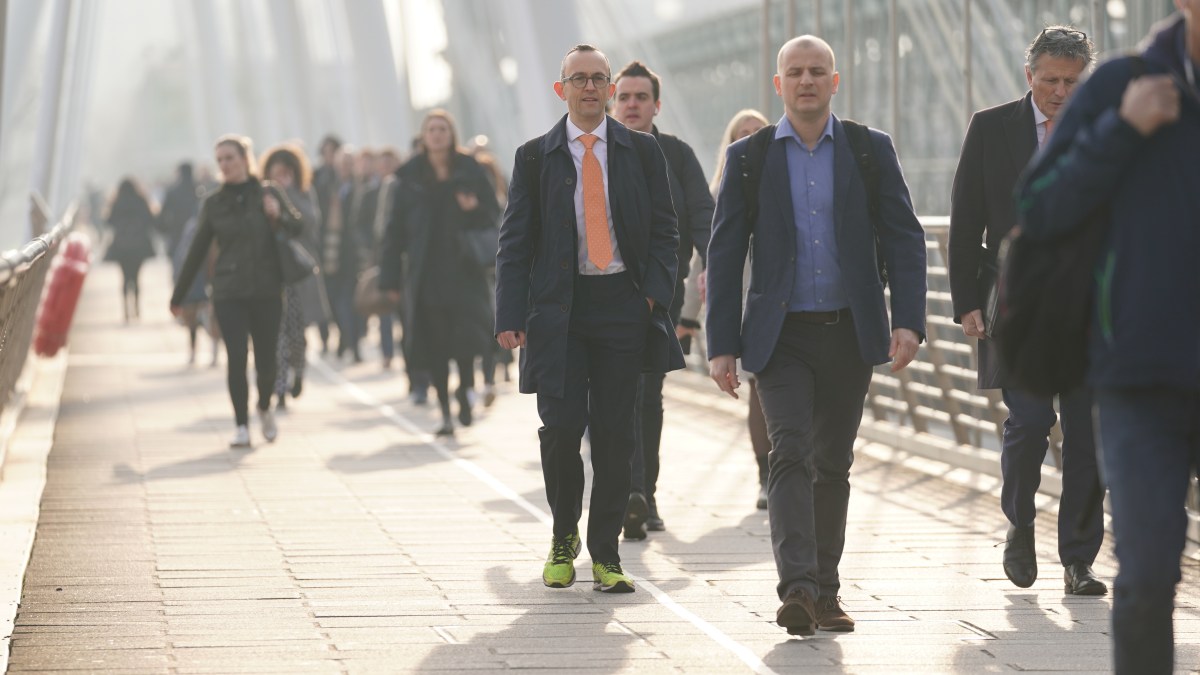The hiring market “remains challenging” but has not worsened over the summer, boosting the share price of Hays on Friday.
The biggest recruiter listed on the London stock market said its net fee income fell 8 per cent between July and September on a year earlier, the same decline as in the previous quarter.
“It’s still tough, but maybe not quite as bad as it was,” James Hilton, Hays’ finance chief, said. “I’m not saying it’s suddenly getting better, but at least I feel that it’s not getting any worse right now.”
After a string of profit warnings across the sector, Hays’s “as expected” update was warmly received by the stock market, sending its shares, which hit 14-year lows a couple of weeks ago, up 3¼p, or 5.5 per cent, to 60¾p.
Hays is based in London but has offices in 31 countries. It is known for being Britain’s biggest recruiter of qualified accountants, although its largest specialism is technology.
After a record-breaking couple of years coming out of the pandemic, when recruiters were making more money than before, the hiring market has been in a downturn for almost three years. Hays has not reported year-on-year growth in its fee income since the first quarter of 2023.
Trade wars and real wars, high interest rates and higher inflation plus a raft of general elections have sapped the confidence of companies and workers. Businesses wary of the uncertain backdrop have delayed their hiring plans, or even canned them entirely, while workers are reluctant to move for fear of being last in and first out.
• I’d rather be rejected by a human, say graduates who can’t find a job
“Businesses are still being incredibly selective about replacement hiring,” Hilton, 47, said. “The majority aren’t expanding headcount — probably the opposite. Businesses are figuring out what artificial intelligence means for them, and what sort of efficiencies and automation they can get from that.”
It is a global phenomenon: between July and September, Hays’s net fee income fell, once again, in all its geographies, from the US to Europe to Australia. Hays’s French business in particular has suffered given the political chaos across the Channel.
Those companies that are still hiring have generally been bringing people in on fixed-term contracts and that trend persisted over summer. While Hays’s contracting business was down 5 per cent year on year, permanent hires were down 13 per cent.
In response to the continued weak trading, Hays, as with the rest of its peers, has dramatically reduced its headcount. It employs about 9,200 people around the world, down from a peak of about 13,400 two years ago, having axed another 4 per cent of roles over summer.
• Rohan Silva: When AI steals our jobs we create new ones
That, along with some office closures and reduced travel spend, has helped to drive its monthly cost base, which had been up at £87 million following the end of lockdown, down to £74 million. More cost savings are expected, although Hilton said headcount will be “stable” this quarter.
As a consequence of the reduced costs, Hays’s operating profit between July and September was “broadly stable” year-on-year, despite the drop in fee income.
Hays expects the market backdrop to “remain challenging”, at least for the next few months. “We need some certainty, some consistency of policy and we don’t need any shocks,” Hilton said.
“Businesses thrive on certainty because they know where the goalposts are. It’s when those goalposts get moved unexpectedly that businesses find it really difficult to make decisions.”
